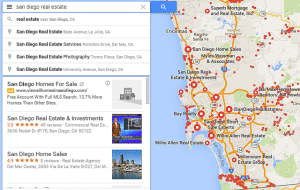How are Homebuyers Searching Online for a Home?
Searching for a Home
This spring of 2020, some investors and home buyers are eagerly anticipating bargain real estate prices. The housing market is very vulnerable, and some homeowners may have to sell their property.
Buyers must go online right now to conduct their home search. Few home sellers are showing their homes in person as the Corona Virus lockdown lingers. Most buyers have limited experience shopping for a home online. Many will limit their home search effectiveness by relying on one or two Realtors site, or on their local mls.
In fact, buyers need to do all they can to maximize reach. Online listings are valuable, but so are lead sources that Realtors use. Social listening is one such valuable source. Sellers often talk about topics or make comments about matters before selling their homes. They may have not even contacted a Realtor yet.
The Frenzied Search for their Dream Home
Web search has changed considerably in the last 7 years yet searchers are still loyal to Google and conduct billions of searches every year.
 When consumers shop for a home, they’re amidst big life changes and buying other products and services. Those expenditures drove the economy in the past. That context means there are multiple ways to intercept them to deliver your message.
When consumers shop for a home, they’re amidst big life changes and buying other products and services. Those expenditures drove the economy in the past. That context means there are multiple ways to intercept them to deliver your message.
Searches on smartphones are growing considerably. Searches for real estate are a just a smidgen of what they were a decade ago, but it indicates the market ahead could be 3X what it is right now.
And young millennial buyers are entering the home buying market. They’ll require a slightly different approach in content and style. Realtors who generate connections with them will be in good standing in the year ahead. I’ve built connections with more than 15,000 successful people on Linkedin. The effort pays off.
All this has to be considered as you develop your Realtor market positioning strategy for the next 5 years.
And on the topic of search, Google’s homes report reminds us that prospective homebuyers begin their search 6 to 12 months in advance of purchasing. A long buy cycle which gives you a good amount of time to intercept them in mid-search. And they’re searching via smartphone. Is your content positioned to put you in the drivers seat?
House hunters used their mobile device most to search for listings and find directions while out looking for a home (Google Consumer Survey, April 2014).
What do the Keywords Tell Us?
These volume estimates below show generic searches for real estate are declining, yet more specific searches such as “homes for sale” have doubled in the last 10 years. It appears you’ll want to focus your keyword strategy around these more unique keyword phrases.
Although California typically dominates real estate, you can see interest rising in the southeastern states.
Houses for rent is the fastest growing phrase and probably one that realtors might want to target. Engaging with these future buyers is smart positioning.
Suffice to say, homebuyers are searching on Google (and Zillow, Realtor.com, and Trulia and a number of real estate portals) and the growth of searches will rise.
3 to 6 month Stock Market | Stock Market Tomorrow | Housing Market | Will the Stock Market Crash? | 5 Year Stock Forecast | Dow Jones Forecast 2023 | NASDAQ Forecast 2023 | S&P Predictions | Stocks Next Week | 6 Month Outlook | Stock Prediction

